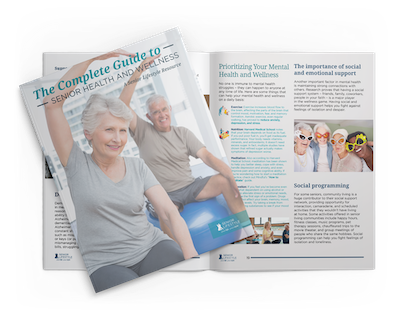Sometimes gravity gets the best of us, and we fall over. It happens to everyone. But as we get older, falling becomes more and more common, as well as more dangerous, and according to the Centers for Disease Control and Prevention, a whopping 35 to 40 percent of older American adults fall at least once a year. Yet, falling doesn’t have to be an inevitable part of senior life. By taking certain steps, you can prevent falling and the potentially negative consequences it might entail.
They say that prevention is the best cure, and with falling, you’ll be preventing something that could negatively impact the rest of your life. Even if you think you’re not at a high risk for falling, there’s no harm in taking these easy, proactive steps to ensure your upright posture and stability.
5 Ways to Prevent Falling
1. Wear practical shoes: It’s important to wear shoes that are comfortable, stable, non-slipping. And as comfortable as your slippers may be, shoes without backs and without support should actually be avoided.
2. Stay physically active: Staying active is an essential way to build strength, balance and coordination: all elements that will help prevent falls in the long run. If you can’t participate in moderate exercise, or are afraid if you do you might fall, consider talking to your doctor about physical therapy, where a trained specialist can help you stay fit in a safe, customized environment.

Download The Complete Guide to Health & Wellness for Seniors
As people grow older, their health and wellness needs change. Read our eBook, “The Complete Guide to Health & Wellness for Seniors” for everything you need to know about staying healthy and happy as we age.
Download the Guide3. Keep your living space convenient and uncluttered: Make sure things you frequently use, like food or medicine, are always easy to reach. Rid your floor of loose rugs, electric cords and clutter you might trip on, and use nonslip mats where needed.
4. Install handy devices: There are many different kinds of devices designed to help people maintain balance: use them. Have handrails in convenient places (especially on stairs), use an elevated toilet seat with arm rests, and have a sturdy seat you can use in the shower.
5. Talk to your doctor: If you have a history of falling, poor vision, or chronic joint pain or numbness, ask your doctor what measures you can take to keep steady. Also make sure any medicine you take (prescription, over-the-counter, or herbal) doesn’t cause drowsiness or vertigo.
By using these tips, you can greatly decrease your chances of hitting the ground. By creating a safer environment, you’ll free your mind of constant worry and have more security and freedom to think about other things.

